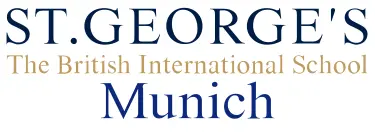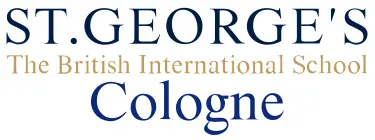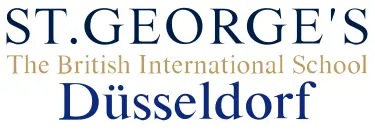In Germany there are a hundreds of institutions that allow the opportunity for advanced degrees and other types of professional and vocational certification. There are state run universities and colleges, private universities and colleges and cooperative universities as well as other schools offering a full range of course studies through full time and part time participation. And, as in most of the rest of the world, it is possible to pursue degrees through online courses.
State run schools are open to all nationalities as long as the student meets the entrance requirements, can get the proper visa or residence permit and have the necessary German language skills. Private schools have their own set of requirements and are open to all. There are dozens of private universities and other schools that offer course instruction in English leading to degrees or other certification.
State run schools in Germany
In Germany, there are more than 300 State run schools. There are over 100 Universität (Universities), more than 165 Fachhochschulen (Universities of Applied Science) and over 50 colleges of art, music and film. While there are many universities and Fachhochschulen that offer certain degree programs taught in English – the vast majority of programs are taught in German.
Universities (Universität)
The classical universities, in the tradition of Alexander von Humboldt, provide a broad general education and students usually attend them from three to six years. Advanced studies in law, medicine, dentistry and other professions that require government licensing are done at universities. A university that has a technological orientation is known as Technische Universität (TU, technical university).
For decades a master’s level degree was the first degree available at a university. This was known as a “one-tier” integrated long program. Recent higher education reforms have introduced two-level programs and students can now earn a bachelor’s degree in three or four years and a master’s degree in five or six years. The one-tier year program is still available in certain disciplines. The bachelor’s and master’s degrees were introduced to avoid the drastic rates of non-completers (which in some university subjects were as high as 75%) as well as to conform with degree programs in other countries.
Getting admitted to a German state university can be a trying process. Many programs are restricted regarding numbers of new students and start only once per year. Acceptance of foreign credentials is difficult and credit transfers rarely happen without losses.
Universities of Applied Sciences (Fachhochschulen)
These institutions generally offer a four-year course of study that leads to credentials at the bachelor’s level and a Diplom (FH) degree. There are more practice-oriented programs. Emphasis is on technology, business, social science and design. More and more Fachhochschulen also offer master’s programs for those students eligible for further study.
The Fachhochschulen do not offer Doctorates nor are there medical or law schools. However, qualified graduates may go apply to other schools to pursue a Doctorate or other professional studies.
Colleges of Art, Music and Film (Kunst, Musik-und Filmhochschule)
These schools are of equivalent status to universities. The 53 state colleges of art, music and film admit students who successfully complete an entrance examination. Germany’s 23 music colleges are popular with foreign students, which comprise over one-third of the student body at these schools. Although the entrance requirements for these schools are quite stringent, the education and training are very high quality.
State/Private Cooperation
There are over three dozen Universities of Cooperative Education in Germany (BA – Berufsakademie) While they are not technically regarded as state institutions of higher education, some of their qualifications are recognized as comparable with of those of universities of applied sciences and many programs may lead to a Bachelor’s degree. These institutions normally integrate vocational training and theoretical studies. These institutions offer specialized education in different businesses, technology and the social sciences.
Study at a Berufsakademie is often dependent on having a trainee contract with an employer. Graduates job prospects are quite good.
International Cooperation
Some international institutions operate in close co-operation with German state institutions, for instance, Duke University with Goethe-Universität Frankfurt.
Some “international” institutions are business units of large German state universities, such as Dresden International University (attached to Technische Universität Dresden), International Department Karlsruhe (attached to Technische Hochschule/Universität Karlsruhe) or Stuttgart Institute of Management & Technology (attached to Universität Stuttgart).
Private Colleges (Private Hochschulen)
There are dozens of private schools in Germany offering a wide degree of courses leading to various degrees and certification. These schools normally charge tuition that can range from 1,800 to 4,700 euros a semester. Some of these schools work closely with industry. There are several so-called “business schools”. Many of these institutions have German state licenses, which allow them to offer one or two year programs leading to vocational degrees below the bachelor’s level. In cooperation with British universities these “business schools” sometimes offer additional programs that lead to British credentials (in German) or master’s level.
Printed brochures describing the state higher education sector are available in English, French and Spanish from the DAAD (German Academic Exchange Service) explaining the different levels of higher education studies (Studying in Germany – Information for foreigners on university services / on Fachhochschule studies/ on studies at colleges of art and music). Additional information at the web-site www.daad.de/en/. Some information about private universities can be found on the web-site www.private-hochschulen.net (in German language only)
Perhaps one of the best online resources for an overview of higher education in Germany is www.hochschulkompass.de
This link will take you through all the higher education institutions, study opportunities at both undergraduate and graduate levels, and international cooperation agreements of German higher education schools.
If there is a particular program you are looking for, we suggest you go to the respective institutional website and contact the registrar’s office directly for further information. Prerequisites will vary from one school to the next, as will the program structure.
Another great resource for information on studying in Germany is www.studienwahl.de, a German site that is sponsored by the German Provincial Commission for Educational Planning and the Research Promotion and the Federal Employment Agency. The site is completely translated into English and will walk you through every aspect of studying in Germany. (In the Studienwahl website the “finder” for academic programs and some other functions are in German.)


























